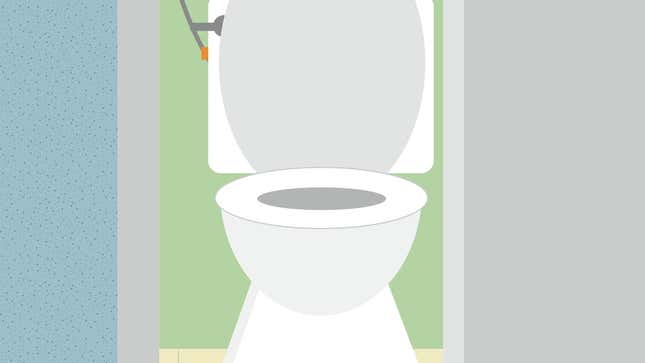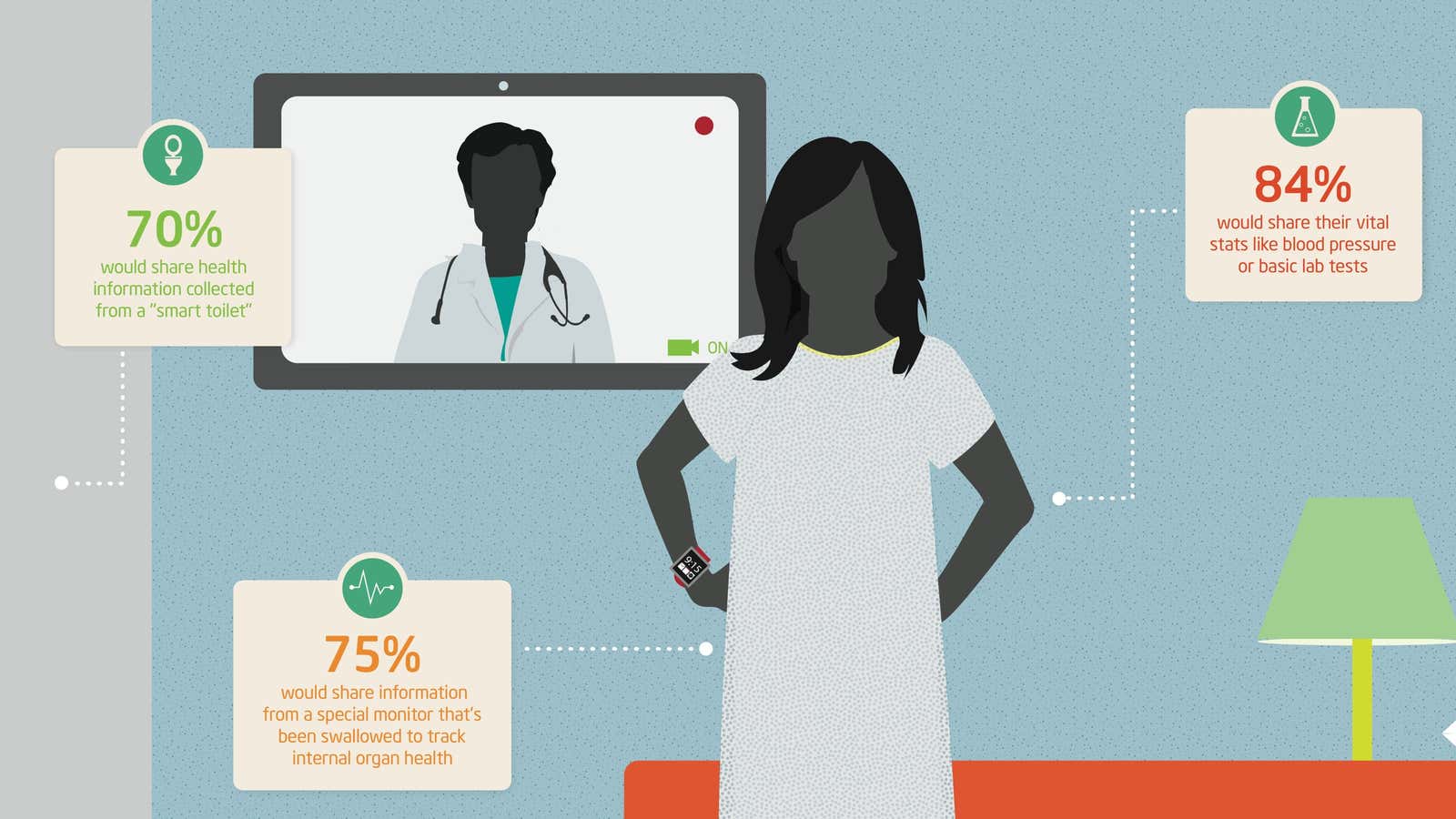Smart toilets: who even knew they were a thing? But perhaps it’s time. Aside from water-conservation and heated seats, there’s been little innovation in toilets since the debut of the original crapper. As long as we’re connecting every other thing we own to the internet, why not a toilet that monitors our health by analyzing our poo?
The results of a new survey from Intel and Penn Schoen Berland say that 70% of people in 8 countries would be willing to share data from their smart toilet (pdf) if it would mean lower healthcare costs. An even higher proportion, 84%, would be willing to share their vital statistics, like blood pressure or basic lab tests, and 75% would be comfortable giving up information gathered by a health monitor they could swallow, even though that’s far more intrusive than a toilet that tweets that you’ve had enchiladas three nights running.

The same survey found that only 30% of respondents would share banking information, but perhaps that’s down to the wording of the question.
This is how the internet of things becomes ubiquitous: We’re offered a service in exchange for adding yet another sensor to our environment—even though smart toilets might some day as easily be used to scan our excretions for illegal drugs or jailbroken nanotech. And of course there are the usual security issues—hackers have already figured out how to nefariously manipulate at least one smart toilet.
